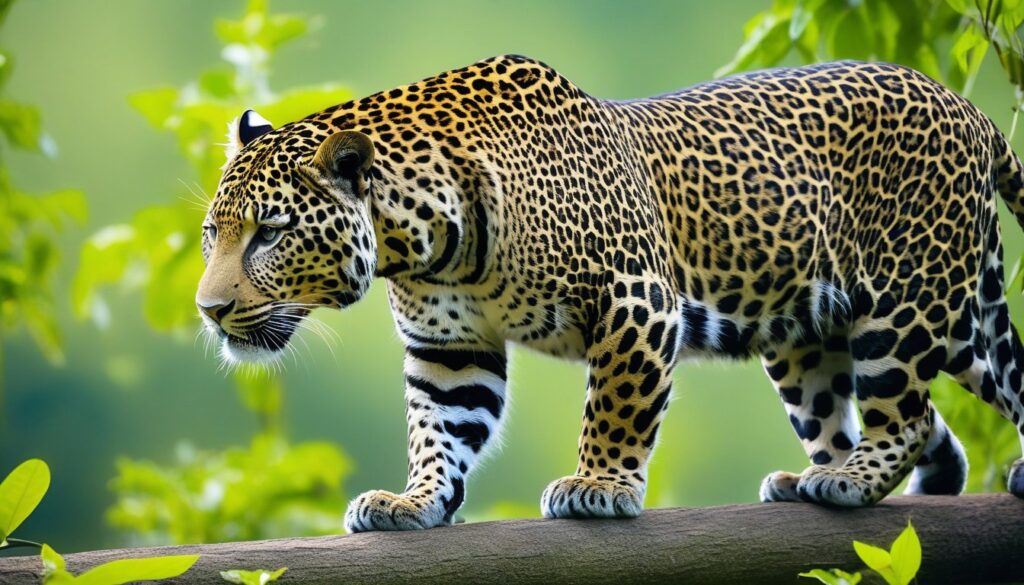Artificial Intelligence (AI) has seamlessly woven itself into the fabric of our daily lives, revolutionizing sectors from healthcare to finance with its ability to process and analyze data at unprecedented speeds. Yet, beyond these familiar terrains lies a realm where AI’s capabilities are being harnessed in surprisingly unconventional ways. This blog post delves into these lesser-known applications, from crafting the perfect beer to optimizing traffic flow, and even aiding in wildlife conservation. Prepare to be intrigued by the breadth of AI’s influence, as we explore how this technology is reshaping industries and hobbies alike with innovative solutions.
AI in Brewing: Crafting the Perfect Beer
The art of brewing beer is getting a modern twist with AI stepping into the mixology lab. Breweries are now employing Artificial Intelligence algorithms to dissect and analyze flavor profiles, enabling them to refine their recipes to perfection. These smart-systems can predict how different ingredients will interact, helping brewers achieve the desired taste with greater precision. Companies like IntelligentX and Carlsberg are at the forefront, utilizing AI to create beers that cater to evolving consumer preferences. This blend of tradition and technology is not only enhancing the brewing process but also paving the way for innovative beer creations.
AI in Fashion: Personalized Clothing Design

Source: unite.ai
Fashion is becoming more personal and sustainable with AI’s touch. Leveraging algorithms, fashion tech companies are offering personalized clothing designs tailored to individual tastes and precise body measurements. This AI-driven customization enables consumers to partake in the design process, ensuring each piece is as unique as the person wearing it. Brands like Stitch Fix and Amazon are harnessing Artificial Intelligence to revolutionize how we shop for clothes, making fashion more inclusive and reducing waste by producing only what is needed, when it’s needed. In this domain you can also use apps such as Nudify to see how anyone would look with clothes on and off.
AI in Urban Planning: Optimizing Traffic Flow
AI’s role in urban planning is becoming increasingly critical, particularly in optimizing traffic flow. By analyzing vast amounts of traffic data, AI algorithms can predict congestion patterns and adjust traffic signal timings in real-time, easing urban congestion. Cities like Pittsburgh and Singapore are already implementing AI-driven traffic management systems, witnessing significant improvements in traffic flow and reductions in travel times. This smart application not only enhances urban living but also contributes to reducing carbon emissions, marking a step forward in sustainable city planning.
AI in Gardening: Smart Plant Care
Gardening is going high-tech with AI-powered devices designed to nurture plants more effectively. These smart systems can monitor environmental conditions such as soil moisture, pH levels, and sunlight exposure, adjusting care routines to ensure optimal plant health. Products like Planty and the Parrot Flower Power have emerged, offering gardeners real-time insights and advice on their green companions. This innovation not only makes gardening more accessible to novices but also helps experienced enthusiasts achieve better results with less effort.
AI in Music Composition: AI-Generated Symphonies
Artificial Intelligence is now stepping into the realm of music composition, creating original pieces that resonate with human emotions. Utilizing algorithms that learn from existing musical styles, Artificial Intelligence can compose music that spans classical to contemporary genres. Projects like AIVA (Artificial Intelligence Virtual Artist) and Google’s Magenta are showcasing the potential of AI-generated music, challenging our perceptions of creativity and authorship. While the reception in the music industry is mixed, these initiatives open up new avenues for exploration in the synthesis of technology and art.
AI in Wildlife Conservation: Protecting Endangered Species

Source: ai.taarushdigitalmarketing.com
In the battle against extinction, AI is proving to be a valuable ally for wildlife conservation. By processing data from camera traps and satellite imagery, AI algorithms can track endangered species, monitor their populations, and identify threats such as poaching or habitat destruction. Conservation initiatives like Wildbook and the Great Elephant Census are leveraging Artificial Intelligence to gather critical insights, enabling more effective protection measures for vulnerable species. This application of AI demonstrates its potential to support conservation efforts on a global scale.
AI in Archaeology: Virtual Reconstruction of Ancient Sites
AI is transforming archaeology by enabling the virtual reconstruction of ancient sites. Through the analysis of archaeological finds and historical texts, Artificial Intelligence algorithms can generate detailed 3D models of historical sites, offering new perspectives on our past. Projects like the Rekrei initiative and Google’s Heritage on the Edge are using AI to preserve cultural heritage, allowing us to explore ancient worlds from our desktops. This innovative use of AI not only aids in research but also helps to safeguard our shared history for future generations.
AI in Agriculture: Autonomous Crop Monitoring
The agricultural sector is reaping the benefits of AI, particularly through autonomous crop monitoring. Drones equipped with Artificial Intelligence technology are surveying fields, analyzing crop health, detecting diseases, and assessing water needs. This precision agriculture approach, embraced by companies like John Deere and DJI, optimizes resource use, boosts yields, and minimizes environmental impact. By providing farmers with actionable insights, AI-driven technologies are paving the way for more sustainable and efficient farming practices.
AI in Cooking: Recipe Creation and Flavor Prediction
AI is spicing up the culinary world by analyzing flavor profiles to create unique recipes and predict taste preferences. IBM’s Chef Watson and the AI-powered app Plant Jammer are at the forefront, offering personalized cooking experiences that encourage culinary creativity. These platforms not only suggest recipes based on available ingredients but also explore new flavor combinations, pushing the boundaries of traditional cooking. This innovative application of Artificial Intelligence opens up a world of possibilities for both professional chefs and home cooks alike.
AI in Mental Health: Personalized Therapy Chatbots

Source: mentalhealthcommission.ca
The field of mental health is embracing Artificial Intelligence through the development of personalized therapy chatbots. These AI-driven platforms provide users with accessible, immediate support, offering coping strategies and therapeutic conversations. Apps like Woebot and Replika are pioneering this space, helping to destigmatize mental health issues and offering a layer of support. While the ethical implications are carefully considered, the potential benefits of providing personalized, accessible mental health resources are immense.
Conclusion
The unconventional applications of AI discussed in this blog post highlight the technology’s versatility and its potential to innovate across various aspects of our lives. From brewing the perfect beer to protecting endangered species, Artificial Intelligence is opening doors to new possibilities and challenges. As we continue to explore the capabilities of AI, it’s clear that its impact goes far beyond traditional sectors, shaping the future in unexpected and exciting ways. Let’s stay curious and open-minded as we navigate this evolving landscape, witnessing firsthand how AI continues to transform our world.



